Director
Chris Thurman is Professor and former Head of the English Department in the School of Literature, Language and Media at the University of the Witwatersrand. He is co-editor, with Sandra Young, of Global Shakespeare and Social Injustice: Towards a transformative encounter (2023). He is also the editor of South African Essays on ‘Universal’ Shakespeare (2014), Sport versus Art: A South African Contest (2010) and fourteen volumes of the journal Shakespeare in Southern Africa. His other books are the monograph Guy Butler: Reassessing a South African Literary Life (2010); Text Bites, an anthology for high schools (2009); and two collections of arts journalism, At Large: Reviewing the Arts in South Africa (2012) and Still at Large: Dispatches from South Africa’s Frontiers of Politics and Art (2017). Thurman is president of the Shakespeare Society of Southern Africa and founder of Shakespeare ZA. He writes a weekly arts column for Business Day.
Schools Liaison Officer
Linda Ritchie is an English teacher who has a passion for seeing learners engage with Shakespeare’s works from their perspectives as South African, 21st-century teenagers. To this end, she has employed a multi-modal approach to the teaching of Shakespeare that encourages learners to use modes such as dance, drama, mime, rap and art to depict the meaning of Shakespeare’s plays. Ritchie’s doctoral research at the University of the Witwatersrand investigated the pedagogical practice of translanguaging in the teaching of Shakespeare to multilingual secondary school learners. Her study focused on the impact of translanguaging on the acquisition of subject-specific content, and on the learners’ perception of their own languages and cultures, as well as the languages and cultures of their peers.
Artists in Residence
Anelisa Phewa is an actor, a writer and an educator. In addition to numerous roles in TV series and movies, he has performed in various Shakespearean productions on stage and screen. Phewa was the Tsikinya-Chaka Centre’s Artist in Residence in 2022, played Hamlet in the live-online-reading of Hamlet directed by Neil Coppen in 2021 and has also appeared in Abrahamse & Meyer’s three-man Richard III and A Midsummer Night’s Dream. His other Shakespearean stage credits include Twelfth Night and A Comedy of Errors at the Maynardville Open Air Theatre in Cape Town. Through his company, Dramatec, Phewa is a consultant for both professional and aspiring actors, as well as production companies and others working in the film and television industry. He is pursuing an MA at the University of the Witwatersrand, focusing on the translation of Shakespeare into isiZulu.
Buhle Ngaba is a South African actor, writer and speaker. She studied at Rhodes University and the University of Leeds. She performed in the world premiere of John Kani’s play Missing at the Baxter Theatre and went on to tour internationally with the production. In 2016, Ngaba won the prestigious Brett Goldin Bursary and worked with the Royal Shakespeare Company. During her time there, she began to write her one-woman play, Swan Song. In 2018, she played Bianca in an all-women cast of The Taming of the Shrew at the Maynardville Open-Air Theatre. She runs Shakespeare Grounded, a programme that facilitates access to Shakespeare through a practical approach between teacher and student. Ngaba spearheaded the #lockdownshakespeare initiative through the Shakespeare Society of Southern Africa and Shakespeare ZA. She was the Tsikinya-Chaka Centre’s Artist in Residence in 2021.
Affiliates
Adele Seeff was Director of the Center for Renaissance and Baroque Studies at the University of Maryland, College Park (1986-2011) and also Director of Outreach in UMD’s College of Arts and Humanities (2005-2011). Her book, South Africa’s Shakespeare and the Drama of Language and Identity, was published by Palgrave in the Global Shakespeare series in 2018. Seeff established the “Attending to Early Modern Women” conferences and co-edited numerous Attending to Early Modern Women volumes for the University of Delaware Press. In 2014 she received a Lifetime Achievement Award from the Society for the Study of Early Modern Women.
Alexa Alice Joubin writes about cultural globalization, Shakespeare, race, gender, and film and theatre adaptations. She teaches in the English Department at George Washington University in Washington, D.C., where she serves as founding co-director of the Digital Humanities Institute. At MIT, she is the founding co-director of Global Shakespeares, an open-access performance video archive. She is the author of Shakespeare and East Asia (Oxford University Press, 2021), co-author of Race (with Martin Orkin, Routledge, 2018), editor-in-chief of The Palgrave Encyclopedia of Global Shakespeare, and co-editor of Local and Global Myths in Shakespearean Performance (Palgrave, 2018) and Shakespeare and the Ethics of Appropriation (Palgrave, 2014). She held the Fulbright Distinguished Chair in Global Shakespeare Studies at Queen Mary University of London and the University of Warwick in the UK. She currently serves as a Fulbright Ambassador.
Amrita Dhar is Assistant Professor of English at The Ohio State University. Her main research interests are in early modern studies and disability studies. She has been awarded a US National Endowment for the Humanities Fellowship to complete her first monograph, Milton’s Blind Language, which examines the workings of blindness towards the making of Milton’s last long poetry. Her next project, Regarding Sight and Blindness in Early Modern Literature:Crossings of Disability, Race, and Empire, traces attitudes towards sight and blindness in early modern English literature to examine the relationship between the cultural production of disability and the intertwined phenomena of early modern global contact, race-making, and belonging. She is also an active climber and mountaineer and writes on world mountaineering literatures.
Amrita Sen is Associate Professor and Deputy Director, UGC-HRDC, University of Calcutta, and affiliated member of the Department of English. She is co-editor of Civic Performance: Pageantry and Entertainments in Early Modern London (Routledge 2020), and has also co-edited a special issue of the Journal for Early Modern Cultural Studies on “Alternative Histories of the East India Company” (2017). Her research focuses on Shakespeare and Shakespeare adaptations, early modern drama, and the early activities of the East India Company. She has published essays and book chapters on Bollywood Shakespeares, East India Company women, and early modern ethnography. Her current book project looks at representations of the East Indies on the English stage.
Ayanna Thompson is a Regents Professor of English at Arizona State University, and the Director of the Arizona Center for Medieval & Renaissance Studies (ACMRS). She is the author of Blackface (2021), Shakespeare in the Theatre: Peter Sellars (2018), Teaching Shakespeare with Purpose: A Student-Centred Approach, co-authored with Laura Turchi (2016), Passing Strange: Shakespeare, Race, and Contemporary America (2011), and Performing Race and Torture on the Early Modern Stage (2008). She wrote the new introduction for the revised Arden Othello (2016), and is the editor of The Cambridge Companion to Shakespeare and Race (2021), Weyward Macbeth: Intersections of Race and Performance (2010), and Colorblind Shakespeare: New Perspectives on Race and Performance (2006). Thompson is a Shakespeare Scholar in Residence at The Public Theater in New York. She currently chairs the Council of Scholars at Theatre for a New Audience in Brooklyn, NY and serves on the Board of Play On Shakespeare. She was the 2018-19 President of the Shakespeare Association of America.
Belinda Mendelowitz is a Senior Lecturer in the Division of Languages, Literacies and Literatures at the Wits School of Education. She teaches postgraduate courses in English Education, including Writing theories and practices, and Language and literacy theories and practices. She also teaches English content and methodology courses in the B Ed programme, mostly in the areas of creative writing, grammar, writing pedagogy and sociolinguistics. She obtained her BA (HDE) from UCT, and Honours in Applied Linguistics, Masters in English Education and doctorate from Wits University. Her PhD focused on teachers’ conceptions and enactments of imaginative writing pedagogy. Her ongoing research focuses on multilingualism and identity, imaginative writing pedagogy, and conceptualising the critical imagination. She is particularly interested in the scholarship of teaching and learning, and how the implementation of powerful pedagogies can generate new forms of knowledge. She is currently writing a book about students’ shifting linguistic identities and multilingual pedagogies.
Ben Naylor is Dean of BADA, the British American Drama Academy, in London. He is a director, actor, writer, researcher and educator. He was previously a Senior Lecturer at the Royal Central School of Speech and Drama (2006-2023). He trained as a director with Peter Hall at the National Theatre and as an actor at Drama Centre London. He has taught at Shakespeare’s Globe Theatre, the Shakespeare Centre and the Young Vic. Over the years Ben has directed fourteen Shakespeare productions and has worked on Shakespeare in translation into several languages, including Spanish, Greek, Hebrew and even Latin! As both director and as acting teacher, his approach to Shakespeare ranges stylistically from ‘original practices’ to the radically contemporary.
Brian Willan is an Extraordinary Professor at Sol Plaatje University and North-West University, and Senior Research Associate at the Institute for the Study of English, Rhodes University, and has written extensively on nineteenth and twentieth-century South African history and literature. His recent biography, Sol Plaatje: a life of Solomon Tshekisho Plaatje, 1876–1932 (Jacana, 2018), won the award for non-fiction (biography) from the National Institute for the Humanities and Social Sciences in 2020. He is also co-editor, with Sabata-mpho Mokae, of Sol T. Plaatje: a life in Letters (Historical Publications Southern Africa, 2020) and Sol Plaatje’s Mhudi: history, criticism, celebration (Jacana, 2020, and James Currey, 2021). Earlier articles of his explored the connection between Plaatje and Shakespeare, and the history of early black South African performances of Shakespeare’s plays.
Carel Nolte holds an MA from the University of Stellenbosch and is an entrepreneur (largely in the financial services industry) who has a passion for Shakespeare. For Carel, the world of Shakespeare and the ideas which continue to flow from these works - reimagined, reinterpreted and amplified by the members of the TCC community - are also essential tools in building successful businesses. He counts himself lucky to be able to play a small role in supporting various arts organisations, as they are vital in ensuring that our world has reason to survive and thrive.
Carla Della Gatta is Assistant Professor of English at Florida State University. She is a theatre historian and performance theorist who examines ethnic and bilingual theatre through dramaturgy and aurality. She is author of Latinx Shakespeares: Staging U.S. Intracultural Theater (forthcoming 2022) and co-editor of Shakespeare and Latinidad (2021). She received the J Leeds Barroll Dissertation Prize from the Shakespeare Association of America for her work on Shakespeare and Latinidad. She consults and does dramaturgical work for theaters. She is on the Advisory Board for the Latinx Theatre Commons and she is the Digital Humanities Editor for The Fornés Institute. She serves on the editorial boards of journals Shakespeare Survey, Teatro: Revista de Estudios Culturales, and for the Arden series on Shakespeare and Social Justice.
Clayton Stromberger is the educational outreach coordinator for the Shakespeare at Winedale program in the Department of English at the University of Texas at Austin. His primary focus for the past three decades has been creative collaboration with classroom teachers and upper elementary students in public elementary schools, using Shakespearean texts as a starting point for yearlong ensemble exploration and performance. Since 2017 he has led Global Classroom initiatives for Shakespeare at Winedale, including connections and exchanges with students at Zhejiang University in Hangzhou, China and Wits University in Johannesburg, South Africa. Before joining the UT Winedale team, Stromberger was a theater director and actor, a classroom teacher in elementary schools, and – in an earlier lifetime – a newspaper and magazine journalist.
Colette Gordon is Senior Lecturer at the University of the Witwatersrand, where she convenes postgraduate programmes and teaches the postgrad course in Early Modern Studies. She holds a PhD from the University of London and has also lectured at University of Cape Town, Queen Mary, Goldsmiths, Royal Holloway, and Central School of Speech and Drama, where she taught Shakespeare and London’s theatre to advanced students and theatre practitioners in the ‘Theatre and the City’ MA. She has Facilitated Shakespeare Teacher Training Workshops and Shakespeare in Prison (where she was a shaky Gertrude) and has been a fellow at the Folger Shakespeare Library. Her work is published in Shakespeare Bulletin, Borrowers and Lenders: The Journal of Shakespeare and Appropriation, Cahiers Elizabethans, Shakespeare: The Journal of the British Shakespeare Society, Shakespeare in Southern Africa, African Theatre, and she has contributed chapters to The Oxford Handbook of Shakespeare and Performance and The Oxford Handbook of Shakespearean Tragedy. She holds a Humanities Teaching and Learning Award and is developing a unique expectation-based pedagogy for teaching early modern drama.
Daniel Galloway fell in love with theatre by accident. With a Degree in Drama & Linguistics from Rhodes University and following eight years at the University of Cape Town as resident Production Manager & Lighting Designer, Daniel was asked to join the brand new, purpose-built Fugard Theatre in Cape Town as Managing Director & Producer in 2010. There he worked alongside Producer Eric Abraham leading a formidable team which established The Fugard as one of the Premiere Theatre Destinations in South Africa. Daniel has produced over 150 productions both locally and internationally, which collectively have received over 220 Award Nominations.
After almost a decade at the helm of The Fugard Theatre, Daniel now offers his Executive Management experience, Mentorship and Training, Consultancy Services and Lighting Design to the performing arts Industry.
Denise Newfield is a retired professor of English and Education at the University of the Witwatersrand, where she worked for many years in preservice and graduate teacher education. She remains research-active in a range of cutting-edge educational projects and supervises graduate theses that concern educational change. Her research interests and publications pertain to the fields of literature and literacy education, multimodality, multiliteracies, posthumanism and new materialism, curricular and pedagogic transformation and decolonisation. Recent publications include Poetry in/and Decoloniality, a special issue co-edited for Education as Change; ‘Touching matters: Affective entanglements in Coronatime’; ‘Thebuwa and a pedagogy of social justice: diffracting multimodality through posthumanism’; Multimodal approaches to research and pedagogy: recognition, resources and access (co-edited with Arlene Archer, 2014); and a special edition of English Studies in Africa, entitled ‘English Education in Africa’, which contains her award-winning article, ‘Mobilising and modalising poetry in a Soweto classroom’ (2006).
Dilip M. Menon is the Mellon Chair in Indian Studies and the Director of the Centre for Indian Studies in Africa at the University of the Witwatersrand. He is a cultural historian interested in oceanic histories and knowledge from the global south. His most recent publications are two edited volumes; one on Capitalisms: towards a Global History (Oxford University Press, 2020) and Changing Theory: Concepts from the Global South (Routledge, 2021, forthcoming).
Fundile Majola was born in New Brighton township, Port Elizabeth, and is currently based in Cape Town. His professional experience spans fifteen years as a linguist, teacher, writer, journalist and editor. He has served for eight years on the ministerial advisory panel of the Western Cape Provincial Language Board. Fundile has worked as a translator into and from English, isiXhosa, isiZulu and siSwati, and is currently translating two books on Steven Bantu Biko into isiXhosa. He contributed isiXhosa Shakespeare translations to Buhle Ngaba’s Shakespeare Grounded programme and continues to work with Ngaba on translating Shakespeare. Fundile also writes, documents and tells stories about his own and others’ daily lives, extracting humour from hardships endured.
Gina Bloom is a Professor in the English Department at the University of California, Davis. Along with early modern drama and Shakespeare studies, her research interests include gender and feminist theory, theatre history and performance, game studies, digital arts/humanities, and education. She is the author of Gaming the Stage: Playable Media and the Rise of English Commercial Theater (2018) and Voice in Motion: Staging Gender, Shaping Sound in Early Modern England (2007). With UC Davis colleagues she co-designed the Mixed Reality game Play the Knave, a teaching and performance tool that allows students to engage with Shakespeare’s plays via avatars that mimic real-life movement. Play the Knave has been widely adopted by teachers in the US and is currently being rolled out in South African schools. It is also the central case study in Experimenting with Shakespeare: Games and Play in the Laboratory (2024). The appendix to the book includes a link to download Blood Will Have Blood, a Shakespeare curriculum that uses Play the Knave to address contemporary violence, co-created with South African high school educator and theatre artist Lauren Bates.
Hassana Moosa is a lecturer at the University of Cape Town. She completed her PhD at King’s College London (where her doctoral research was funded by the Commonwealth Scholarship Commission) and her MA at UCT. Her research explores early modern English literary and dramatic representations of race, religion and slavery in the Mediterranean Basin. She is also interested in pre-modern English encounters with Muslims from the Ottoman Empire and the Maghreb. Hassana is on the steering committee of the Early Modern Scholars of Colour UK Network. She is also the News Editor of the Medieval and Early Modern Orients (MEMOs) platform, where she regularly publishes blogs on her recent research. She recently featured on the Shakespeare’s Globe Podcast #SuchStuff on the S6 episode: ‘How whiteness dominates the study of Shakespeare’.
Henry Bell is a performance academic, theatre director and applied theatre practitioner specialising in Early Modern Drama and Digital Pedagogy, Theatre Making, Theatre-in-the-Round, Applied Theatre, Actor Training, Farce and Theatre Comedy, Theatre and Phenomenology and Cross Media Collaboration. He has worked as Senior Lecturer in Performance at University of the West of Scotland since January 2021. Prior to this he was at Sheffield Hallam University, and before his career in higher education he was Associate Director, Stephen Joseph Theatre (2013-2016) and Community, Education and Literary Director, Orange Tree Theatre (2009-2013), along with a variety of roles at Shakespeare's Globe, Almeida Theatre, freelance theatre direction and the running of DogAteCake. He has also taught and made work at East 15 Drama School, Hull University, St Mary's University, Twickenham and JASSPA Drama group. Henry guest edited the Journal for Research in Drama Education 25.1 (Teaching Shakespeare: Digital Processes) and has written on in-the-round Shakespeare actor training methodology in Theatre, Dance and Performance Training. He contributes ongoing Practice-as-Research to the anti-discrimination NGO yesterday/today/tomorrow.
Ifeoluwa Aboluwade is a postdoctoral reasearch associate and a member of the DFG-funded Cluster of Excellence „Africa Multiple: Reconfiguring African Studies“ at the University of Bayreuth, Germany. She also received her PhD degree in English Literature from the University of Bayreuth, where she teaches courses on translation studies, transcultural literature and Shakespearean drama. She was a Fulbright FLTA at New York University, USA from 2008 to 2009 and a lecturer at Covenant University, Nigeria from 2007 to 2012. Her research interests include Translation Studies, Adaptation Studies, Multimodal Studies, Shakespearean and Nigerian Drama. She is the author of Subversive Transformations: Translation, Orature and Multimodality in Selected Plays by Femi Osofisan (2020), which re-theorises translation by introducing perspectives from Nigerian (Yoruba) cultures, extending the perception of translation as solely a written-textual practice to translation as a verbal and an embodied phenomenon. Her ongoing research focuses on relationships between trickster and warrior motifs in Shakespearean drama and selected West African oral and visual narratives. A second project examines the intersections between memory and translation within the context of the translation of Shakespearean plays by Nigerian playwrights.
Innocentia J. Mhlambi is an associate professor in the Department of African Languages at the University of the Witwatersrand. She teaches African-language literatures, black film studies, popular culture, oral literature and visual culture. She is the author of African-language Literatures: Perspectives on isiZulu Fiction and Popular Black Television Series (2012), a critical intervention into the aesthetic hiatus in the field. She has published extensively on aesthetics, literature, black opera, popular culture and broadcast and print media in South Africa. She has been recognised by the University of Michigan Presidential Scholars Programme and is currently doing research into black opera in post-1994 South Africa. Other awards and grants include: the University Research Council; Carnegie Research Grant; Mellon Grant; University of Michigan Residency Programme; The Academic and Non-Fiction Authors’ Association of South Africa (ANFASA); African Humanities Programme Postdoc Fellowship; South African National Research Foundation Rating (C2); two University of Michigan Mellon Foundation Grants; and the University of Witwatersrand Mellon Funded Inclusive Professoriate Grant.
Jean Meiring completed a law degree from Stellenbosch University before studying and teaching law at both Oxford and Cambridge. He is an advocate at the Johannesburg Bar, an academic, a writer, an arts critic and a playwright. Meiring has contributed articles, reviews and other commentary to a wide range of media in South Africa, especially the literary website LitNet. He is the recipient of four ATKV Mediaveertjie prizes, the inaugural kykNet-Rapport book reviewer of the year prize for Afrikaans fiction in 2016, and a Literary Journalism Award at the South African Literary Awards in 2021. He is editor of South Africa’s Constitution at 21 (2017), a collection of essays that explores what the Constitution means for South Africans and for the world. He has a particular interest in Afrikaans translations of Shakespeare’s plays.
Jyotsna G. Singh is Professor in the Department of English at Michigan State University. Her published works include Colonial Narratives/Cultural Dialogues: “Discoveries” of India in the Language of Colonialism (Routledge, 1996); Shakespeare and Postcolonial Theory (Bloomsbury Arden, 2019); Travel Knowledge (coedited with Ivo Kamps; Palgrave, 2001); The Weyward Sisters: Shakespeare and Feminist Politics (coedited with Dympna Callaghan and Lorraine Helms; Wiley Blackwell, 1994); A Companion to the Global Renaissance (editor; Wiley Blackwell, 2009); The Postcolonial World (coedited with David Kim; Routledge, 2016); and numerous book chapters and articles. She serves as coeditor of Palgrave’s New Transculturalisms, 1500–1800 series. Singh has also been the recipient of several visiting fellowships, including at Queen Mary University of London (2008) and the John Carter Brown Library, Brown University (2010). Most recently, she was elected a Visiting Fellow of St. Catherine’s College, Oxford University (Michaelmas term, 2019). Her affiliation to the TCC continues a South African connection first established at the “Shakespeare/Postcoloniality” Conference at the University of Witwatersrand, Johannesburg in 1997.
Kai Wiegandt teaches literature at the Barenboim-Said Akademie. His interests include postcolonial and world literature, migration literature, early modern literature and culture, literary anthropology and the intersections of philosophy and literature. Wiegandt studied English and German literature and philosophy at Universität Freiburg, Yale University and Freie Universität Berlin, from which he received his doctoral and professorial degrees. He held a visiting professorship at the University of Cape Town from 2011 to 2012. In 2014 he was elected member of the German Young Academy at the Berlin-Brandenburg Academy of Sciences and Humanities and the German National Academy of Sciences Leopoldina. From 2016 to 2018 he was a postdoctoral research fellow at the Friedrich Schlegel Graduate School for Literary Studies at Freie Universität Berlin and in 2018 was awarded a Heisenberg Fellowship at Universität Tübingen by the German Research Foundation (DFG).
Kathryn Vomero Santos is Assistant Professor of English and co-director of the Humanities Collective at Trinity University. Her cross-historical research on translation explores the intersections of theatrical performance with the politics of language, empire, and racial formation in the early modern period and in our contemporary moment. With Katherine Gillen and Adrianna M. Santos, she co-founded the Borderlands Shakespeare Collective, a multi-institutional interdisciplinary initiative that seeks to generate resources and conversations about Shakespeare, race, language, and coloniality in the U.S.–Mexico borderlands. She currently serves as Performance Reviews Editor for Shakespeare Bulletin and is working on a book about interpreters and the embodied economies of live translation in early modernity.
Laurence Wright is an Extraordinary Professor at North-West University. He was formerly H.A. Molteno Professor of English and Director of the Institute for the Study of English in Africa at Rhodes University. He is Honorary Life-President of the Shakespeare Society of Southern Africa, a member of the South African Academy of Science, and a Gold Medallist and Fellow of the English Academy of Southern Africa. He has published widely on Shakespeare, on the future of the humanities, and on South Africa’s educational crisis. Some relevant Shakespearean publications include ‘South African Shakespeare in the Twentieth Century’, Shakespearean International Yearbook 9, Ashgate 2009: 3–28; ‘Three Decades of the Shakespeare Society of Southern Africa: 1986-2016’, Shakespeare in Southern Africa 31, 2018: 47-59; ‘Interrogating the Spread of Shakespeare: Australia and New Zealand’, Multicultural Shakespeare 8, Lodz University Press; and ‘Global Live: Shakespeare’s Future in the Global Village’, Shakespeare in Southern Africa 26, 2014:123-129.
Lekan Balogun combines theory with practice as a scholar, researcher, award-winning playwright and theatre director. Founder and Artistic Director of Legendaire Theatre, Lagos, which he established in 2008, Balogun has worked in the theatre for nearly three decades. He completed his PhD in Global Shakespeare and Intercultural Performance from Victoria University of Wellington (New Zealand), after receiving BA and MA Theatre Arts degrees from the University of Lagos Akoka (Nigeria). He joined the Centre for Theatre, Dance and Performance Studies at the University of Cape Town (South Africa) as an Andrew W. Mellon Fellow on the project, “Reimagining Tragedy from Africa and the Global South”. He was Visiting Fellow at the Moore Institute, National University of Ireland, Galway and was granted a Bayreuth Advanced African Studies Fellowship at the University of Bayreuth (Germany); most recently, he received a Georg Forster award from the Alexander von Humboldt Foundation.
Lisa M. Barksdale-Shaw is an Assistant Professor in the Department of English at Arizona State University. Previously she was Visiting Assistant Professor in James Madison College’s Humanities Culture and Writing at Michigan State University. She completed her law degree at the University of Michigan Law School and her doctoral degree from Michigan State University. In 2016, she worked on racial trauma in-residence at the Erikson Institute for Education and Research at the Austen Riggs Center, a clinical hospital in Massachusetts. She has published in Routledge’s “Material Readings in Early Modern Culture” series (2018), The Renaissance Quarterly (2019), and Shakespeare in Southern Africa (2020). Her work examines the narrative of justice by combining several disciplines, including law, literature, and medicine. In her work, she foregrounds evidence and criminology, litigation practices and procedure, trial advocacy, material culture, stage properties and performance, racial trauma, ethics, state actors and the history of law.
Malcolm Cocks is a Lecturer in Literatures in English at the University of the West Indies, St Augustine. He is mostly interested in grassroots theatre adaptations and performances of Shakespeare’s plays in a global context and particularly from the perspective of the audience. He was the Postdoctoral Research Fellow in Shakespeare and Global Audiences at the Shakespeare’s Globe Theatre where he worked with touring productions and particularly the Globe-To-Globe Hamlet World Tour (2014-2016). He is currently working on a project that brings audience archiving, spectatorship, and history of the emotions into the seminar room by centring students as spectators for the plays. His teaching includes Global Shakespeare, African theatre, Performance Studies, and Renaissance poetics.
Marc Maufort is Professor of Anglophone literatures and drama at the Université Libre de Bruxelles (ULB, Belgium). He is the current editor of Recherche littéraire/Literary Research, the bilingual annual publication of the International Association for Comparative Literature (ICLA). Maufort has written and (co-)edited several books on Eugene O’Neill as well as postcolonial and multi-ethnic drama, including Labyrinth of Hybridities: Avatars of O’Neillian Realism in Multi-ethnic American Drama (1972-2003) (2010) and Forays into Contemporary South African Theatre: Devising New Stage Idioms (2020). He has been the convenor of a course on Shakespearean drama at ULB since 2005. He has authored several reviews of Shakespeare productions in Belgium and abroad as well as an essay on Shakespeare’s dramatizations of ‘Otherness’ in Europe.
Marguerite De Waal is a lecturer at the University of Pretoria. She completed her PhD at the University of the Witwatersrand in 2022. Her doctoral thesis was on the staging of Shakespeare’s plays in post-apartheid South Africa. Aspects of her work have been presented at the Shakespeare Society of Southern Africa’s conference, “Shakespeare and Social Justice” (2019) and the University of Cologne’s Summer Institute on Theatre Historiography. Her publications include an article in Shakespeare in Southern Africa titled “Close Encounters: Staging Julius Caesar, Coriolanus and Antony and Cleopatra in contemporary South Africa” (2020). She has also written for the website Shakespeare ZA as a reviewer and interviewer.
Naomi Nkealah is a lecturer of English in the Division of Languages, Literacies and Literatures in the School of Education at the University of the Witwatersrand, Johannesburg. Her research specialises in the re-theorisation of African feminisms for contemporary African scholarship and the exploration of representations of gendered violence and women’s empowerment in African women’s literature. She has published widely on these subjects in journal articles, as well as chapters in books such as Globalization, Media and Popular Culture in Nigeria (2016), Style in African Literature: Essays on Literary Stylistics and Narrative Styles (2012) and Performing Gender in Arabic/African Theater: Between Cultures, Between Gender (2009). She is the chief editor of Imbizo: International Journal of African Literary and Comparative Studies. In 2016 she received the Distinguished Young Woman Scientist Award – Humanities and Social Sciences Category – at the Women in Science Awards run by the Department of Science and Technology in South Africa. In addition to her research, she is a published poet and short story writer.
Néka Da Costa is a lecturer in the Theatre and Performance department at the Wits School of Arts in Johannesburg. She is an academic, theatre director and artistic collaborator interested in the intersections between theatre research and performance practice. Her research explores the potential for theatre to extend its reach to marginalised and alternative audiences with various access and communication needs and abilities. She has directed productions for the National Children’s Theatre and VR Theatrical, with her most recent collaboration, Tiny the Tokoloshe and Other African Tales, winning the Naledi Theatre Award for Best Production for Young Audiences. She is about to embark on a PhD journey centring on creating theatre with and for audiences with disabilities, and is interested in the potential of translanguing, multilingualism and sense-based strategies to increase theatre accessibility and inclusivity both in the professional theatre industry and in the academic space, as part of the intersectional decolonisation project.
Nina Lucy Wylde started her career as an assistant programming editor for BBC 1 and 2. She went on to train at Rhodes University in Grahamstown (BA Honours), the Royal Central School of Speech and Drama in London (MA) and with Ivana Chubbuck at the Actors Centre. She has worked in performing arts, as well as in arts education, ever since. She has extensive experience with verse text performance, specifically Shakespeare, having worked with Rob Clare, Giles Block and Tim Carroll (Globe Theatre and RSC). Her Shakespeare performance and directing credits include Hamlet, Macbeth, Much Ado About Nothing, The Tempest, The Winter’s Tale, Measure for Measure, As You Like It, Cymbeline and A Midsummer Night’s Dream. She has taught at Rhodes University and Wits University, and was Academic Head of Undergraduate Studies at AFDA Johannesburg as well as Head of Theatre Studies at d’Overbroeck’s College in Oxford. In 2010 she started The Framework Theatre Company, which focused on guerilla-style Shakespeare performances all over South Africa.
Nishi Pulugurtha is Associate Professor, Department of English, Brahmananda Keshab Chandra College, Kolkata. Her areas of interest are British Romantic literature, Indian writing in English, the Indian diaspora and Shakespeare adaptations in film. She has published in the Coleridge Bulletin, The Encyclopaedia of Postcolonial Studies (Blackwell), Shakespeare and Indian Cinemas: Local Habitations edited by Poonam Trivedi and Paramita Chakravarti (Routledge), and The Cambridge Companion to British Romanticism and Religion edited by Jeffrey W. Barbeau (forthcoming) among others. She has a monograph on Derozio and a collection of travel essays, Out in the Open, an edited volume of essays on travel, Across and Beyond (2020) and a volume of poems, The Real and The Unreal and Other Poems (2020), as well as a collection of short stories, The Window Sill (2021). She has also edited a special issue of Muse India on “Shakespeare in Indian Cinema” (forthcoming).
Odirin Victor Abonyi is a researcher with backgrounds in English, literary studies and language pedagogy. He has been involved in collaborative translation projects such as the translation of the Convention on the Rights of the Child and the Nigeria Child Rights Act from English into Naija. He has twice been a recipient of a Volkswagen Ford Foundation scholarship to attend summer schools on Digital Humanities and Natural Language Processing. He has been Junior Linguistics Researcher at the Institute of French Research for Africa - Nigeria (IFRA-Nigeria), teaming up with lexicographers on an ongoing Wiktionary-like project, Naijionary. Presently, he is championing a digitisation project to curate West African oral forms such as folktales, songs and proverbs. His article on a translation of Shakespeare’s Hamlet into Naija will be appearing in Shakespeare in Southern Africa volume 33.
Ogini Bernard is a playwright, translator and researcher working in Nigerian Pidgin (Naija). He holds an M.A. in Theatre Arts from the University of Ibadan. He has translated and adapted various literary and dramatic works to Nigerian Pidgin, including Shakespeare's Hamlet (Oga Pikin), Romeo and Juliet (Rukevwe and Julie) and Macbeth (Makindegobeth). In addition to his creative endeavours, Bernard has actively engaged with various organisations like UNESCO, the Afrika Youth Movement, the Institute of French Research Africa, the Initiative for Information Arts and Culture Development (American Corner), Vistatec Translation Service Dublin and the Centre For Digitization of Indigenous African Languages (CDIAL), an African cloud-based software initiative aimed at researching, standardising and providing digital inclusion via African Languages. He was also a lecturer for the Museum Lab Project at Museum Für Naturkunde in Berlin. He is the founder and director of the Catholic Museum of Nigeria.
Peter W. Marx holds the Chair for Media and Theatre Studies at the University of Cologne. He is also director of the Theaterwissenschaftliche Sammlung Cologne, one of the largest archives for theatre and performance culture in Germany. His focus of research is theatre historiography, Shakespeare in Performance and the formation of theatre as a cultural practice in the Early Modern Period. In 2018, he published Hamlets Reise nach Deutschland. In 2020, he published his monograph Macht|Spiele: Politisches Theater seit 1919 and edited the volume Dokumente, Pläne, Traumreste, a comprehensive catalogue and essay collection, celebrating the centenary of the Theaterwissenschaftliche Sammlung. His books on theatre history include two with a special focus on German-Jewish artists in the late 19th / early 20th century: Max Reinhardt (2006) and Ein theatralisches Zeitalter (2008). In 2021, the Handbook on Theatre and Performance Historiography (co-edited with Tracy C. Davis) will be forthcoming with Routledge.
Image (c) Hermann & Clärchen Baus
Robyn Tyler is a researcher in the Centre for Multilingualism and Diversities Research at the University of the Western Cape. She also teaches and supervises pre-service teachers. Robyn’s research focuses on language, literacy and identity in education with a special interest in language across the curriculum in multilingual contexts. She graduated with her doctorate in 2019 from the University of Cape Town. Her thesis reported on a linguistic ethnography conducted over nine months in a township high school. It explored meaning-making by bilingual English-isiXhosa Science learners in two learning sites: the traditional classroom setting and an after-school study group. Robyn is a member of the bua-lit language and literacy collective, which advocates for a rich literacies approach to the education of all South Africa’s children.
Ruben Espinosa is Associate Professor of English at Arizona State University and Associate Director of the Arizona Center for Medieval and Renaissance Studies. He is the author of Shakespeare on the Shades of Racism (2021) and Masculinity and Marian Efficacy in Shakespeare’s England (2011), and co-editor of Shakespeare and Immigration (2014). He was a Trustee of the Shakespeare Association of America (2018-2021), and he serves on the Editorial Boards of Shakespeare Quarterly, Exemplaria: Medieval, Early Modern, Theory, and Palgrave’s “Early Modern Cultural Studies” series. He is currently at work on his next monograph, Shakespeare on the Border: Language, Legitimacy and La Frontera.
Sabata-mpho Mokae teaches Creative Writing in African Languages (Setswana) at Sol Plaatje University in Kimberley. He is the author of an accessible biography The Story of Sol T. Plaatje (2010) and Setswana novels Ga ke Modisa (2012), Dikeledi (2014) and Moletlo wa Manong (2018). In 2014 he was writer-in-residence at the University of Iowa where he was subsequently awarded an Honorary Fellowship in Writing. He is the winner of the M-NET Literary Award for Best Setswana Novel (2013), M-NET Film Award (2013) and two South African Literary Awards (in 2011 and 2019). He has co-edited, with Brian Willan, Sol Plaatje's Mhudi: History, Criticism, Celebration (2020) as well as Sol T. Plaatje: A life in letters (2020).
Sandra Young is Professor of English Literary Studies at the University of Cape Town where she teaches early modern literature and thought, and contemporary literary and cultural studies. Her first book, The Early Modern Global South in Print: Textual Form and the Production of Human Difference as Knowledge (2015), traces the emergence of a racialized “global South” in early modern geographies. Her second, Shakespeare in the Global South: Stories of Oceans Crossed in Contemporary Adaptation (2019), examines innovative adaptations across the global South (in Mauritius, South Asia, Brazil, South Africa and the diasporic urban spaces of the global North) that engage Shakespeare to tell new stories of dispossession. She also researches memory culture in the aftermath of political struggle: she is currently at work on a manuscript titled “An Intimate Archive: Personal Memory and Public Commemoration in the Aftermath of Apartheid”. She is Vice President of the Shakespeare Society of Southern Africa.
Sanele KaNtshingana is a lecturer in African Languages at the University of Cape Town. His doctoral research maps out how amaXhosa political life and ideas of political authority were discursively manoeuvred and shaped by amaThwasa ooNcwadi ‘African intellectuals’ in the vernacular press and other Black registrars in the nineteenth and early twentieth centuries. Sanele co-translated extracts from Othello into isiXhosa for the 2023/24 Baxter Theatre production of that play. He is co-investigator of “Imagining the Ordinary City: Arts, Placemaking and Everyday Urban Lives”, a British Academy-funded research project bringing attention to literary, visual and performance pieces that have sought to explore the usually overlooked or ‘ordinary’ South African cities. Sanele also leads Makhanda Black Kollective (MBK), which aims to re-educate young people about traditions of African intellectual thought and activism through creative forms, centring the agency and the voice of the youth. He is a Mandela-Washington Fellow.
Sarah Roberts has enjoyed a long history with Shakespeare in theatre-making launched by playing Jessica for Mexican director Hector de Puerto’s Merchant of Venice in Cardiff (1979). Since then she has spent countess creative and happy hours at a drawing board, in workshops and rehearsal rooms working with Shakespeare’s plays for orthodox theatres and for classrooms. Productions include two theatre-in-education productions for Brian Charteris: Egypt in Eastcheap by David Ritchie (1983) and The Fool in Shakespeare (1984). She has designed eleven different Shakespeare productions at Wits University and “directed” five: A Midsummer Night’s Dream (with David Horner), Coriolanus, Much Ado About Nothing, Julius Caesar and Othello (with John Kani). Career highlights include designing As You Like It for Francois Swart and King Lear and Antony and Cleopatra for James Whyle and the Take-Away Shakespeare Company.
Serena Talento is Assistant Professor at the chair of Literatures in African Languages at the University of Bayreuth, where she teaches Swahili and thematic courses on translation studies, particularly in relation to African contexts. She is also a Research Associate of the Department of Linguistics and Language Practice at the University of the Free State. Her research interests include literary exchanges from and into Swahili, sociology of translation, translation history, translation and nationalism, translation and manuscript cultures. She has worked on translations of Shakespeare’s plays into Swahili, especially considering these translations in relation to issues of nationalism and socialism, cultural representation, cultural empowerment and acceptance. In her forthcoming book Framing Texts/Framing Social Spaces: The Conceptualisation of Literary Translation in Three Centuries of Swahili Literature she examines the discourse on literary translation into Swahili in three different historical settings to explore how such discourse on translation correlates to the literary, historical and social field of reception.
Tinashe Mushakavanhu is a Junior Research Fellow in African and Comparative Literature at St Anne’s College, University of Oxford. Between 2019 and 2021, he was a postdoctoral fellow at the Wits Institute for Social & Economic Research (WiSER) at University of the Witwatersrand in Johannesburg, South Africa. His research and teaching interests are African and diaspora literatures, postcolonial literature, creative writing, media studies, popular culture, digital cultures, digital humanities, anarchic poetics, and space and urbanism in Africa. His forthcoming books are A Brief History of the Zimbabwe International Book Fair (Cambridge University Press, 2022), This Man is Dangerous: Dambudzo Marechera’s Harare (Jacana, 2022) and Ndabaningi Sithole: A Forgotten Founding Father (HSRC Press, Voices of Liberation series, 2022).
Tonderai Munyevu is an actor, writer and director for stage, screen and radio. Among his many critically acclaimed performances are Two Gentlemen Of Verona or Vakomana vaviri veZimbabwe (Two Gents/ Shakespeare’s Globe), Sizwe Banzi Is Dead at the Young Vic (and tour) and Black Men Walking at the Royal Court (and tour), as well as the film Something Nice From London (Latimer Films). He is the co-artistic director of Two Gents Productions. His writing includes Mugabe, My Dad and Me (York Theatre Royal/ETT/Audible), The Moors (Tara Arts Theatre / Two Gents Productions), Harare Files; How 700,000 People Lost Their Homes (with Sarah Norman), Zhe [noun] Undefined (with Antonia Kemi Coker and Chuck Mike) at Soho Theatre; the short radio play A Tranquil Mind (BBC Radio 4) and various prose pieces including The Visiting Hours; A Dispatch From Zimbabwe (Johannesburg Review of Books), Bullets (Team Angelica) and On James Baldwin (Queer Bible).
Zwelakhe Mtsaka has worked variously as an English lecturer, a playwright (The Bargain, Bongi’s Struggle), a director and an actor - on stage and screen (Matatiele, The Wound, The River). He was part of the editorial team that worked with Victor Houliston to produce titles for the Wits School Shakespeare series. Mtsaka is currently pursuing doctoral research at the University of the Witwatersrand, with a focus on the adaptation and translation of Shakespeare’s plays in South Africa - ranging from the Drum writers to the isiXhosa translations of B.B. Mdledle.
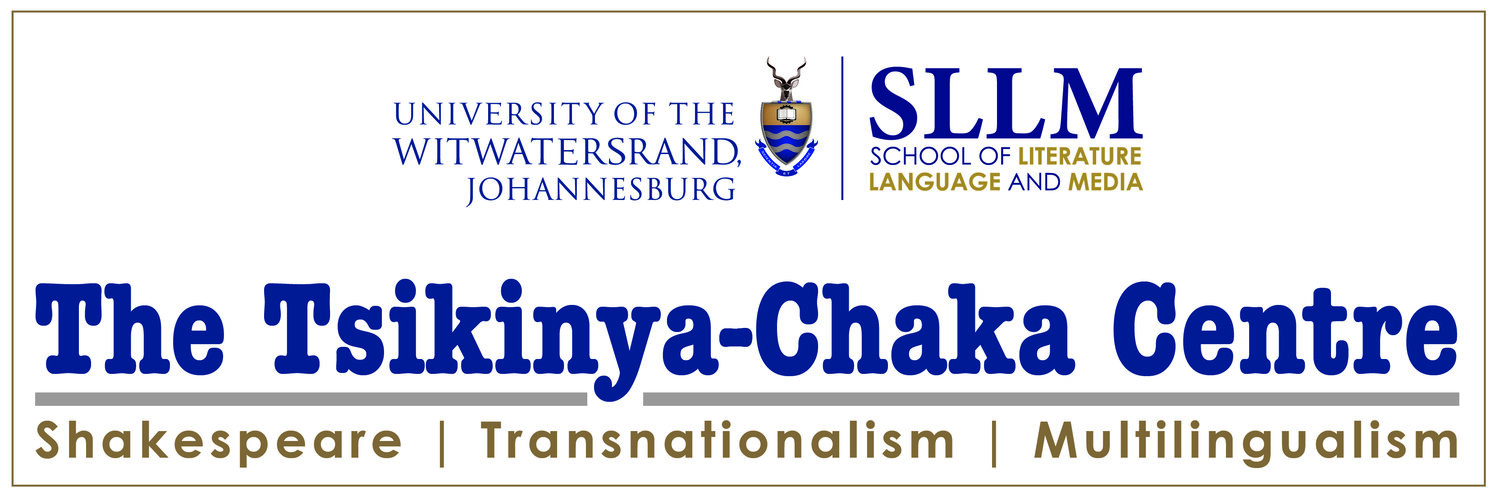




























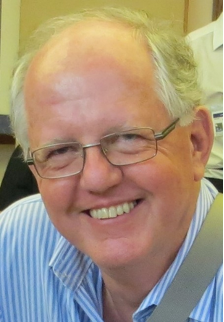


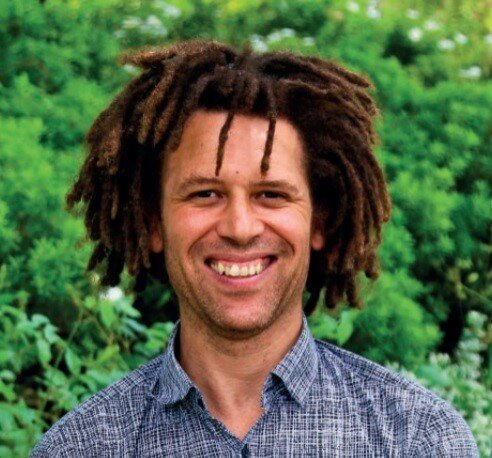

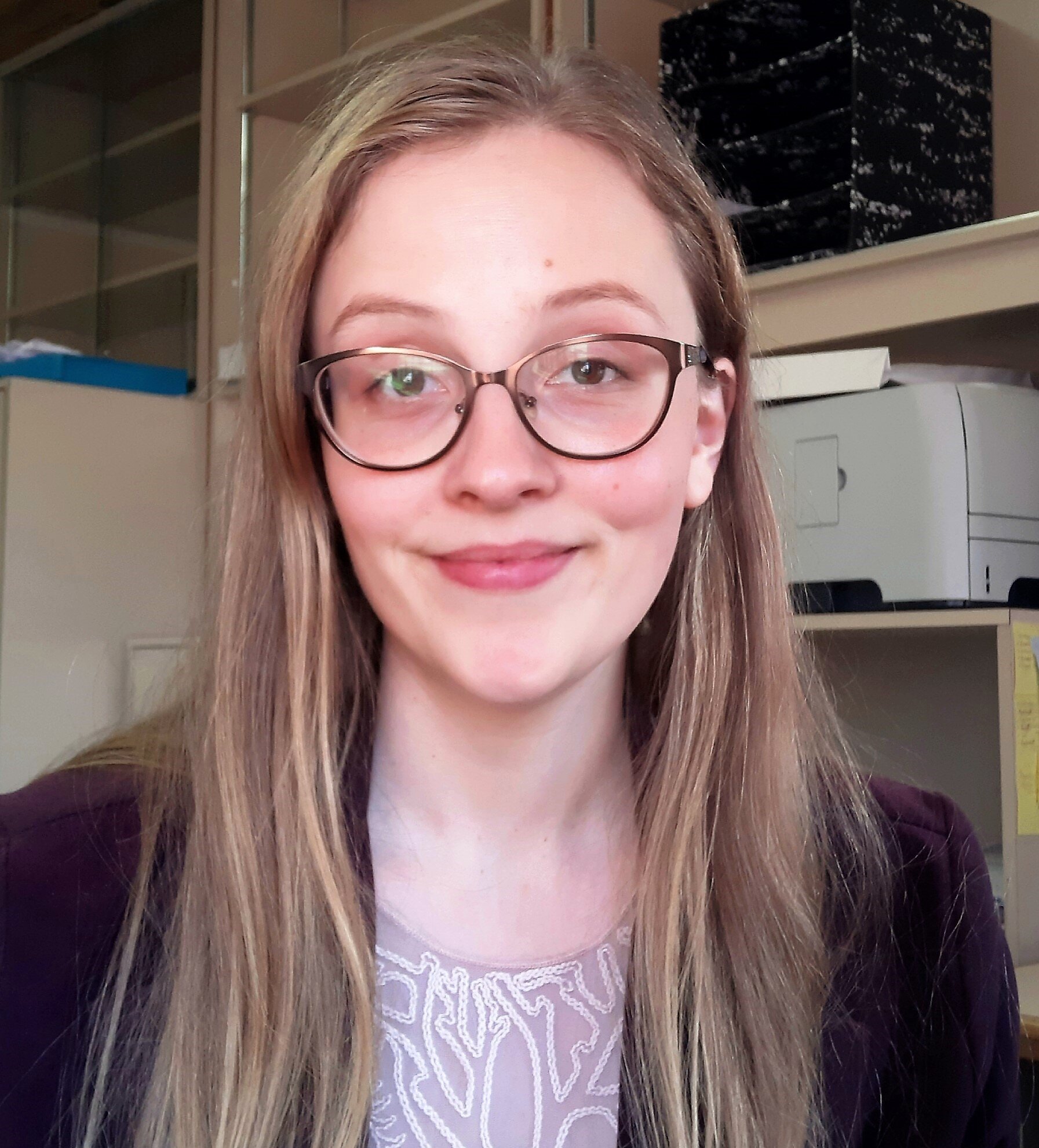








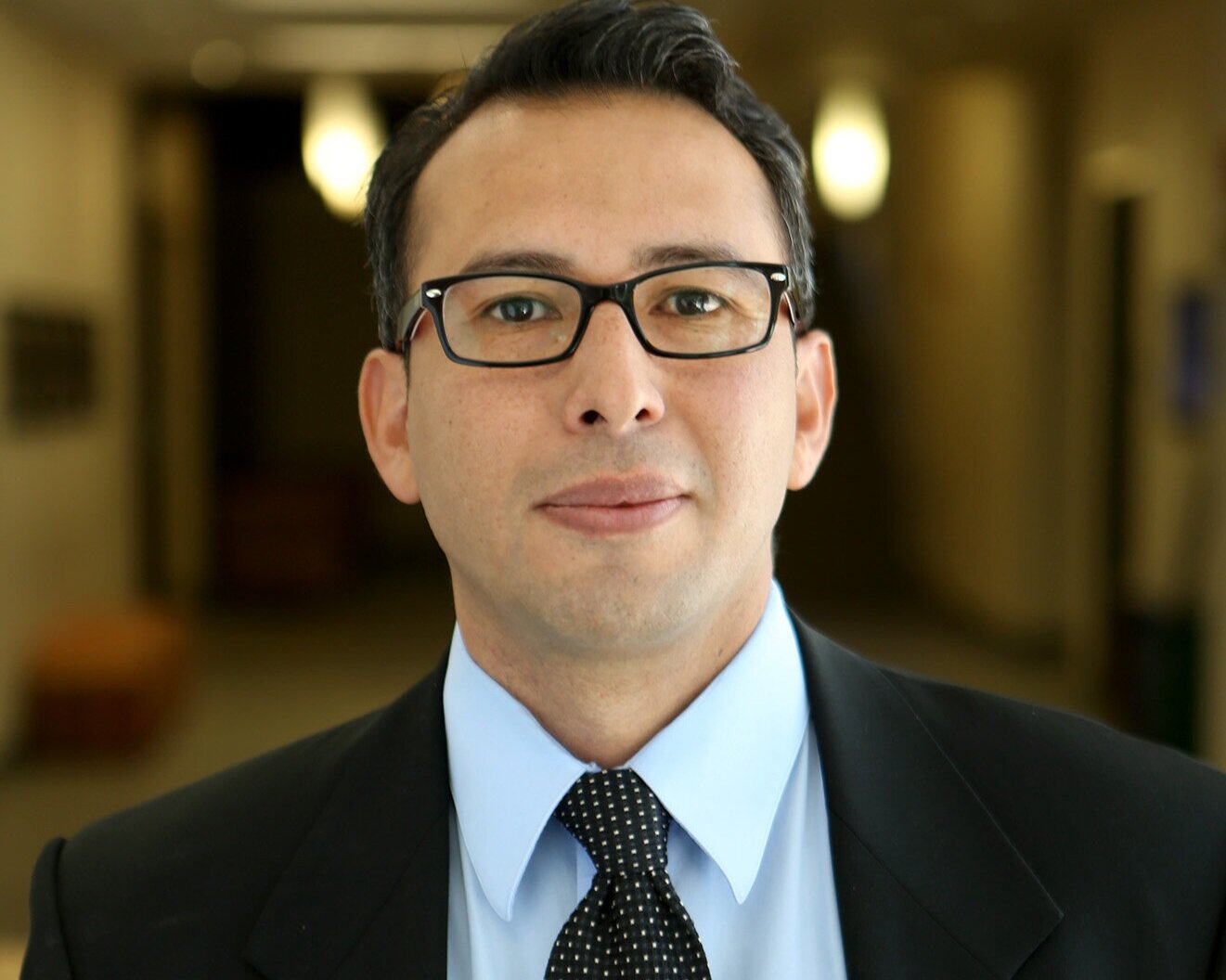

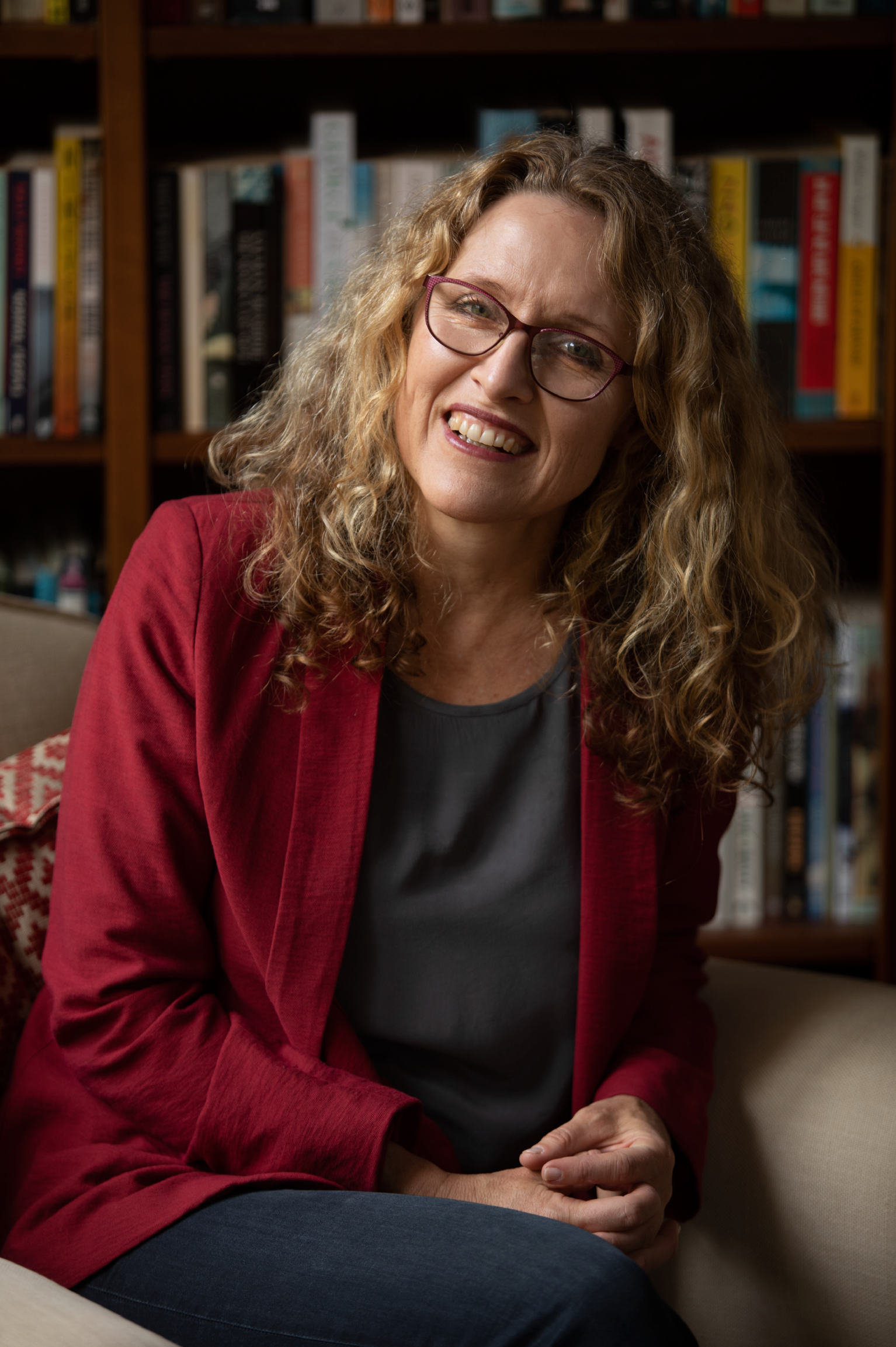




![Tonderai Munyevu is an actor, writer and director for stage, screen and radio. Among his many critically acclaimed performances are Two Gentlemen Of Verona or Vakomana vaviri veZimbabwe (Two Gents/ Shakespeare’s Globe), Sizwe Banzi Is Dead at the Young Vic (and tour) and Black Men Walking at the Royal Court (and tour), as well as the film Something Nice From London (Latimer Films). He is the co-artistic director of Two Gents Productions. His writing includes Mugabe, My Dad and Me (York Theatre Royal/ETT/Audible), The Moors (Tara Arts Theatre / Two Gents Productions), Harare Files; How 700,000 People Lost Their Homes (with Sarah Norman), Zhe [noun] Undefined (with Antonia Kemi Coker and Chuck Mike) at Soho Theatre; the short radio play A Tranquil Mind (BBC Radio 4) and various prose pieces including The Visiting Hours; A Dispatch From Zimbabwe (Johannesburg Review of Books), Bullets (Team Angelica) and On James Baldwin (Queer Bible.) He was shortlisted for The Alfred Fagon Award 2019 and received The Peggy Ramsay Foundation Grant for his latest play Black Farce.](https://images.squarespace-cdn.com/content/v1/601ea5d5bf34eb004be36be2/1615310662296-7ULM8GDU0YBLB182O4JH/thumbnail_can+be+cropped+TM+by+Phillip+Meech.jpg)
